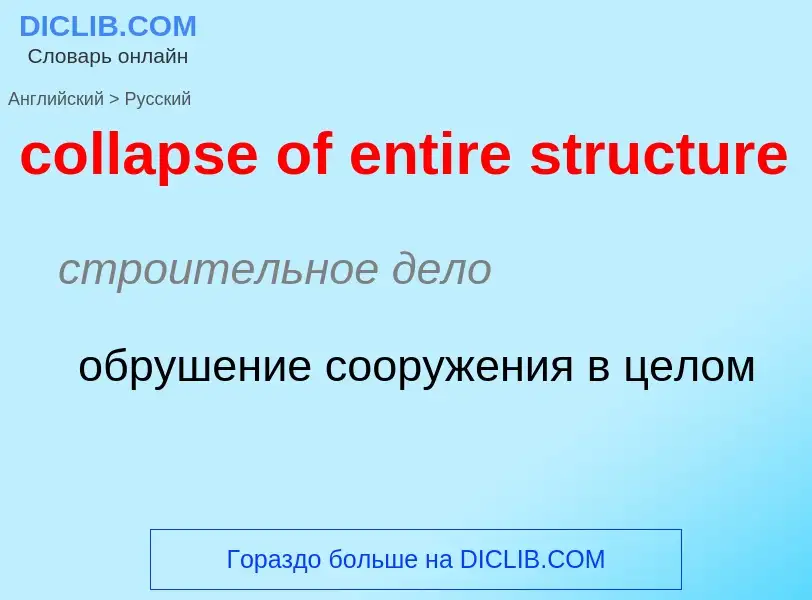Übersetzung und Analyse von Wörtern durch künstliche Intelligenz ChatGPT
Auf dieser Seite erhalten Sie eine detaillierte Analyse eines Wortes oder einer Phrase mithilfe der besten heute verfügbaren Technologie der künstlichen Intelligenz:
- wie das Wort verwendet wird
- Häufigkeit der Nutzung
- es wird häufiger in mündlicher oder schriftlicher Rede verwendet
- Wortübersetzungsoptionen
- Anwendungsbeispiele (mehrere Phrasen mit Übersetzung)
- Etymologie
collapse of entire structure - Übersetzung nach russisch
строительное дело
обрушение сооружения в целом
Definition
.
Wikipedia
In complex analysis, an entire function, also called an integral function, is a complex-valued function that is holomorphic on the whole complex plane. Typical examples of entire functions are polynomials and the exponential function, and any finite sums, products and compositions of these, such as the trigonometric functions sine and cosine and their hyperbolic counterparts sinh and cosh, as well as derivatives and integrals of entire functions such as the error function. If an entire function has a root at , then , taking the limit value at , is an entire function. On the other hand, the natural logarithm, the reciprocal function, and the square root are all not entire functions, nor can they be continued analytically to an entire function.
A transcendental entire function is an entire function that is not a polynomial.
Just as meromorphic functions can be viewed as a generalization of rational fractions, entire functions can be viewed as a generalization of polynomials. In particular, if for meromorphic functions one can generalize the factorization into simple fractions (the Mittag-Leffler theorem on the decomposition of a meromorphic function), then for entire functions there is a generalization of the factorization — the Weierstrass theorem on entire functions.


![The [[Thirty Years' War]] devastated much of Europe and was one of the many political upheavals during the General Crisis of the Seventeenth Century, which is causally linked to the Little Ice Age. The [[Thirty Years' War]] devastated much of Europe and was one of the many political upheavals during the General Crisis of the Seventeenth Century, which is causally linked to the Little Ice Age.](https://commons.wikimedia.org/wiki/Special:FilePath/Bautzen-nach1620-Merian.jpg?width=200)
.png?width=200)
![Map of the [[Late Bronze Age collapse]] (ca 1200 BC) in the Eastern Mediterranean Map of the [[Late Bronze Age collapse]] (ca 1200 BC) in the Eastern Mediterranean](https://commons.wikimedia.org/wiki/Special:FilePath/Invasions, destructions and possible population movements during the Bronze Age Collapse, ca. 1200 BC.png?width=200)
![Barbarian invasions]] played an important role in the fall of the Western Roman Empire. Barbarian invasions]] played an important role in the fall of the Western Roman Empire.](https://commons.wikimedia.org/wiki/Special:FilePath/Invasions of the Roman Empire 1.png?width=200)
![political collapse]], marked by the abandonment of cities political collapse]], marked by the abandonment of cities](https://commons.wikimedia.org/wiki/Special:FilePath/Temple of the Great Jaguar.jpg?width=200)


![destroyed their environment]] that by around 1600, their society had fallen into a downward spiral of warfare, cannibalism, and population decline. destroyed their environment]] that by around 1600, their society had fallen into a downward spiral of warfare, cannibalism, and population decline.](https://commons.wikimedia.org/wiki/Special:FilePath/Île de Pâques - Moaïs au pied de la carrière 3775a.jpg?width=200)
